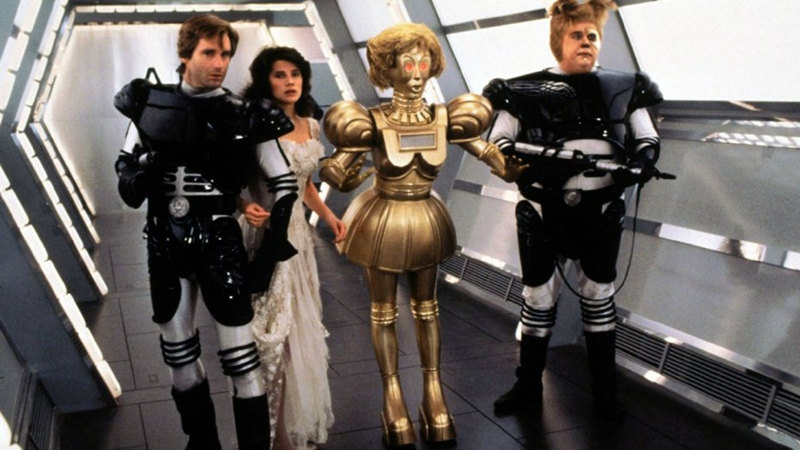“Bus Stop” (1956) is an odd duck. It’s considerably more over-the-top than William Inge’s Broadway play, upon which it’s loosely based, with one of it’s webbed feet dipping directly into the waters of dinner-theater farce. Yet it’s also tonally heavier, at times, than the theatrical production—as if Marilyn Monroe and young Don Murray got very two different memos explaining what director Joshua Logan wanted.
Monroe is Cherie (pronounced Cher-EEE, because it sounds classier), an aspiring Hollywood actress and singer whose only jobs have been at dives where the customers and bosses are abusive. But nothing is more abusive than being stalked by a delusional and boorish cowboy who’s in town for the rodeo. Murray, as Bo, is as obnoxious as a drunk at a sales convention, with a “Yee-haw!” bellowing and crude manner that’s almost as offensive as his notion that to get a woman you just rope her like a steer. What she says or how she feels doesn’t matter.
There are moments in this romantic dramedy when Murray is whooping it up like one big and clueless puppy of a turnip that just fell off the truck, while Monroe is channeling the desperation of a woman who’s trying to elude a stalker.
As I said, even without the quack, it’s an odd duck.
But Monroe impresses with her consistent southern accent and her evocation of a woman who wants the moon, but knows deep down inside that she’s no astronaut. She also conveys the sense that Cherie has had one too many abusive or controlling boyfriends to be roped in by this annoying, over-eager lad who shouts down a sleazy club audience to make them quiet during one of Cherie’s performances and later announces his intentions at the rodeo to marry his “angel.” It’s also impressive that Monroe gives Cherie less talent than she herself had, singing slightly off-key and being just a little clumsy onstage. It’s not the Marilyn audiences knew, but she’s convincing.
Veteran character actor Arthur O’Connell usually has the perfect touch, and he does here too, fighting the temptation to ratchet his character up to the caricatured level of Murray—who really makes this a much louder movie than it ought to be.
Whether it was Logan’s direction or Murray’s interpretation, Bo is just too broadly played—to the point of annoyance, really. We’re tired of him and his “act” after the first few sequences. I suspect that some viewers will either like the film because of Monroe’s performance, or hate it because of Murray’s.
Video:
Monroe is meant to look pale, but in some scenes all the colors seem somehow undersaturated. Or maybe this 1956 film is just showing its age. I do know that it’s distracting to see noise on Monroe’s white blouses. Apart from that, though, I saw no problems with the AVC/MPEG-4 transfer. And kudos to Fox for putting this on a 50GB disc at a 33MBPS bit rate. “Bus Stop” is presented in 2.55:1 aspect ratio.
Audio:
The audio is an English DTS-HD MA 4.0, with additional options in French DTS 4.0 and Spanish Dolby Digital 1.0. Subtitles are in English SDH, Spanish, and French. You really don’t hear a 4.0 mix much, so the sound can sometimes seem a bit contained—just a think notch above a 2.0, really.
Extras:
The only bonus features are the original theatrical trailer and a few more Monroe Fox movie trailers.
Bottom line:
Except for a tone that pulls in opposite directions, “Bus Stop” is an old-fashioned film that follows the romantic comedy formula to a tee. You know: Boy ropes girl (literally), girl escapes, boy essentially kidnaps girl, girl escapes, boy stalks girl, girl escapes . . . . Isn’t it romantic?


